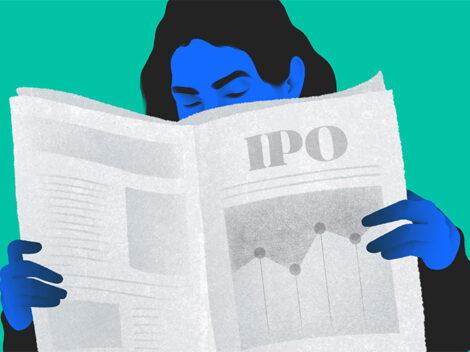Startups that quickly rise to unicorn status commonly don’t sustain their high valuations. While some rise to bigger heights, a large constituency in sectors like scooters and instant grocery delivery haven’t lived up to high, early expectations.
To get a sense how becoming an early unicorn correlates with future success, we took a sampling of companies that passed the $1 billion value mark less than two years after founding. We then categorized them based on their ability to sustain high valuations and market growth.
Search less. Close more.
Grow your revenue with all-in-one prospecting solutions powered by the leader in private-company data.
Below, we look at the cohort across three categories: fast faders, public market flops, and those for whom the verdict still awaits.
Fast Faders
First off, it’s obvious that many startups that were quick to join the unicorn herd also flamed out rather rapidly.
The poster child for this phenomenon is probably Clubhouse, the audio-based social networking platform that became a thing in early 2021 for the pandemic work-from-home crowd. As Clubhouse’s invite-only downloads soared, so did its cache among investors. The app, launched in 2020, landed a Series B in April 2021 at a reported $4 billion valuation.
Things have largely gone downhill since. While Clubhouse is still around, it’s not a buzzy property anymore. The app ranks No. 67 in the U.S. for the social category on the Google Play Store, per AppBrain. Meanwhile, looking to narrow its focus, Clubhouse reportedly carried out layoffs in June.
The instant grocery delivery services Gorillas and Jokr were also quick to soar and then falter.
Berlin-based Gorillas, founded in 2020, raised nearly $1.3 billion in 2021 at a reported post-money valuation around $3 billion. More recently, the company’s trajectory has been marked by layoffs, exodus from multiple markets, and focusing on cutting cash burn.
Meanwhile, fast delivery provider Jokr, founded in 2021, raised $430 million last year and logged one of the swiftest paths to unicorn status of any startup. It slowed fast too. This summer, the company announced it was shuttering New York and Boston operations as it focuses on Latin America.
Public markets won’t support these numbers
Sometimes, venture investors give companies much higher valuations than public markets will support.
This was the case for Bird, the e-scooter rental platform that soared to unicorn-hood in autumn 2017, just a few months after its launch. In the following years, its branded scooters became omnipresent on the streets of major cities.
Then, in May 2021, Bird announced it would go public through a SPAC merger at an expected initial valuation around $2.3 billion. It worked out badly. Bird plummeted immediately upon completing its merger in November. So far this year, the price has fallen further, with shares recently going for 36 cents each.
Desktop Metal, the 3D printing company that had an unusually rapid ascent to a billion-plus valuation, has also struggled on the public markets. While the stock was trending up for a few months following its NYSE debut in December 2020, it’s since sharply reversed. Today, Desktop Metal’s market cap is around $800 million. That’s not a pittance, but certainly well below its valuation as a private company.
Newer fast unicorn outlook seems iffy
Last year set the all-time record for startup investment, and many members of the fast unicorn club minted billion-plus valuations just a few months or quarters ago. Thus, it’s speculative to assess whether those values will hold up in the near or long term.
So far, it looks iffy for several.
For one, some of those were pandemic-driven market trends which are showing signs of receding. For instance Hopin, a platform for managing virtual, hybrid and live events that was founded in 2019, pulled in $1 billion in 2020 and 2021, hitting a peak valuation of $7.75 billion.
A year later, Hopin is cutting back. The London-headquartered company laid off 29% of its staff in July, after cutting 12% a few months earlier. The company has also been re-positioning its offering for broader appeal in a world where live events are back in vogue.
Thrasio, an aggregator of online brands selling on Amazon, was also quick to hit a high valuation. Founded in 2018, the Massachusetts company raised $2.2 billion in equity funding and $1.2 billion in debt by late 2021 to fuel its ultra-fast growth.
Then its fortunes turned. By May 2022, Thrasio was carrying out layoffs, and plans for a public offering at a potential $10 billion valuation have been thrust aside as U.S. e-commerce growth subsides.
Yuga Labs, known for its Bored Ape Yacht Club NFTs, is also facing a much-changed environment, but nonetheless seems to be holding up OK. The Miami-headquartered company, founded in 2021, raised $450 million in March at a reported $4 billion valuation. Shortly afterward, prices for its signature imagery hit their peak. But although they’ve fallen, even the cheapest was still recently selling for around $110,000.
Then there’s Pacaso, a two-year-old, San Francisco-headquartered service for buying stakes in second homes that hit unicorn status just five months after launch. Since then, U.S. real estate markets have been shifting fast in the face of sharply rising mortgage rates. However, it’s probably too early at present to conjecture about how Pacaco’s business model will fare.
Two other quickly minted recent unicorns–Tel Aviv-based cybersecurity startup Wiz and Miami-headquartered crypto payments and NFT upstart MoonPay–fall in a similar bucket. It’ll take time to vet how they’re managing to grow in these leaner times.
Is there a lesson here?
Are there lessons to be learned from the early unicorn crowd? An obvious one is that generating buzz and high valuations at an early stage isn’t a reliable indicator of future success. Another is that when you’re betting on a trend, make sure it looks like a lasting one (and not, say, a pandemic-driven temporary adaptation).
Still, there is some truth to the notion that transformative companies and founders can be recognized early. When four-year-old Apple went public in 1980, for instance, it was already a profitable company with a hit product. Google, founded in 1998, took just a couple years to dominate the search engine space.
So, yeah, it’s probably realistic to expect some of these fast unicorns to soar to amazing heights. Many, however, will fall to Earth.
Illustration: Dom Guzman

Stay up to date with recent funding rounds, acquisitions, and more with the Crunchbase Daily.











![Illustration of pandemic pet pampering. [Dom Guzman]](https://news.crunchbase.com/wp-content/uploads/2021/03/Pets-2-300x168.jpg)
67.1K Followers